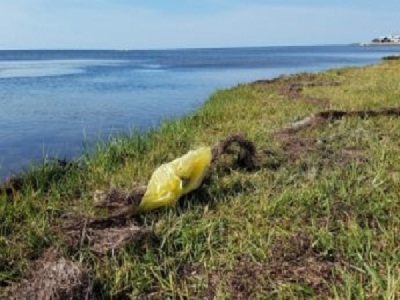
Posted on July 6, 2017
By Kirk Ross, The Outer Banks Voice
Going into the final day of the 2017 long session last week, the fate of dozens of environmental provisions, some in multiple bills, was still an unknown.
The measures include coastal stormwater changes, the creation of a new coastal storm damage mitigation fund to pay for beach re-nourishment, new dredging plans and repeal of the plastic bag ban on the Outer Banks.
Although they didn’t become law during the January-June session, there is still a chance for them to be taken up again.
Wary of veto possibilities by Gov. Roy Cooper and with an eye toward a handful of elections and redistricting lawsuits, the legislature included plans in its adjournment resolution to return to Raleigh for sessions in both early August and September.
Rep. Pat McElraft, R-Carteret, said it was clear as the session wound down last week that there wasn’t enough time to deal with the large mix of provisions left scattered in a half-dozen bills.
In an interview, McElraft said that, for now, it’s likely that the legislature will act on those bills during the September session.
None of the provisions are urgent, McElraft said, but she and Brown are interested in seeing the coastal storm damage mitigation fund in place soon. The fund was part of the Senate budget proposal, but was dropped from the final bill during conference negotiations and the provision added to two bills. Much as he did with the inlet dredging fund, Brown has sought to set up a reliable pool of funds for beach re-nourishment.
McElraft said that, although there are no state funds going into it this year and next year, it’s important to get the fund set up so that it can accept federal dollars and private donations.
“We really want to start getting private money in that fund,” she said.
In addition to private donations, setting up the fund will be important should there be federal money available.
One hitch in committee hearings over the fund was whether any of the money would go toward costs related to terminal groins. State law currently prohibits the use of state funds for authorized terminal groin projects. But earlier this month, Brown asked the House to drop a clause specifically prohibiting the use of the coastal storm damage fund for terminal groins.
McElraft said she supports the move and could see the fund being used in the case of a storm damage to a terminal groin.
“My philosophy is that we’re not asking for any more terminal groins, but if there’s storm damage we can help them,” she said. Should there be more groin projects in the future, she said, the legislature has the option of putting restrictions on their funding then.
In an interview last week, Brown said the fund would be a pool of money from several sources.
McElraft said House Bill 469, the omnibus bill with the fund provision, will be among those taken up in September. Last week, while it was still on the House calendar for the last day of the session, there were nine proposed amendments for H469, including one to reinsert the prohibition on terminal groin spending.
Also among the amendments proposed but not yet voted on is a move by Rep. Beverly Boswell, R-Dare, to add a provision to repeal the plastic bag ban in Outer Banks beach communities. Although several versions of the repeal appeared in various bills this session, none made it into law.
In all, there are six key bills with environmental provisions, Senate Bill 16, House Bill 374, Senate Bill 469, House Bill 56, House Bill 434 and Senate Bill 770. Of the group, versions of S16, H56, S770 passed both chambers and conference committees were set up to negotiate the differences. H374, S434 and S469 all reside in the House Rules Committee and could resurface. Some of the bills overlap, sharing provisions deemed important enough to be housed under multiple bills to assure their passage.
Cassie Gavin, director of government relations for the North Carolina Sierra Club, said the stack of bills include provisions of special concern, especially language in H374 that changes how contested cases on environmental permits are handled.
“It would limit public access to the courts for environmental cases,” Gavin said. The plastic bag ban repeal does seem to keep coming back as well, she said. “All of the local governments have come out in favor of keeping it, yet for some reason it’s still being considered.”
Gavin said another area of concern is a mix of rollbacks and exceptions to coastal stormwater controls and buffer rules that remain in the bills.
Source: The Outer Banks Voice





